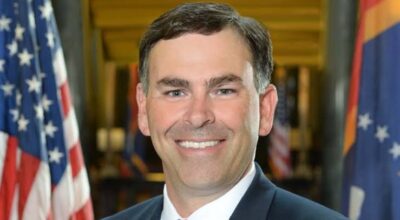Mitchell: Candidates, media team up to panic voters in election year
Published 12:00 am Tuesday, August 16, 2016
OXFORD — A bit of advice for people in a total tizzy over the presidential election: Get a soda and some popcorn, turn off CNN and Fox for an hour or two and watch the 2015 movie, “Our Brand is Crisis.”
By the time the movie’s closing credits roll, it should be clear that electioneering is the most cynical of worlds. Voters are toyed with, played or, in the vernacular, punked. Winning is what matters, and any strategy is fine as long as it leads to victory.
There are many movies about the seamy side of politics. “Our Brand is Crisis,” featuring Sandra Bullock and Billy Bob Thornton, is the most stark in displaying what may be the most effective approach: Invent a crisis, feed dire predictions to a horror-hungry press and then declare your candidate is the only bulwark standing between good, hardworking citizens and utter disaster.
If this narrative doesn’t sound familiar, it should.
It’s certainly not new.
None of this is to say elections aren’t important. None of this is to say choosing the person to serve as a mayor or governor or chief executive of the nation should be taken lightly. But here are some facts to remember, at least when it comes to the occupant of the White House.
• Presidential power is limited.
The American experiment, thoughtfully designed and embodied in the 1789 Constitution, turned the centuries-old structure of society upside down. Previously, monarchs and their minions mattered. People were voiceless. The Constitution reversed that, or at least modified it. Regardless of the imperial trappings and the bowing and scraping accorded elected officials these days, they still work for the taxpayers.
• Branches of government are (almost) equal.
Don’t need a history lesson on this. Congress has shut down President Obama for the past five years. At times the president has tried to use executive powers to bypass the House and Senate. Recently and from time to time, the Supreme Court has shut down the president, ruling that he’d exceeded his authority.
• Big media is increasingly lazy and has become totally driven by audience numbers as opposed to truth.
The shift may have started with the Kennedy presidency. He was charismatic. It was easier and cheaper, especially for television, which was new, to cover one person than it was to slog through the intricacies of hearings and the committee system of 535 people in the House and Senate.
The outfall, quite naturally, was for succeeding generations to increasingly regard presidents as center of power. Serving as commander-in-chief is not small change, nor is the serving as the nation’s face to the world. The power of the bully pulpit is significant. But people do think presidents have more ability to steer the nation than they actually do. Ask any former president.
More recently has come the well-documented media shift. Before the internet, news editors — usually white men in short-sleeve white Dacron shirts and pencil-thin black ties — defined what was news and served it up in daily papers or 30-minute newscasts. Today, people decide what they want to know and they have nearly infinite choices where to seek it. Any tactic to attract and hold an audience is good. A decline in ratings is exponentially worse that missing or misreporting an important event.
So today’s best media companies are defined as those who remain profitable by attracting the largest audiences and one effective way to attract and keep a large audience is to tell people what they want to hear.
Another tactic — and Alfred Hitchcock would affirm this — is to scare people out of their wits. People enjoy drama, suspense and especially fear. And this fits nicely — very nicely — with the desire of campaign strategists to (1) foment panic and (2) position their person as the solution.
Test this: Tune to CNN or Fox. Note how animated, how breathless the on-air personalities become. Where real journalists are fact- and solution-oriented, these folks exude excitement and intrigue. They ask questions and invite us to return after the commercials for the answers (which they don’t have). They tell us how they are our allies and friends and was must stay with them if we are to be informed.
They position themselves as the soul of the nation, but it’s mostly a charade.
The soul of the nation is the people. The people don’t always do the best job of selecting the best people for leadership roles. All may not be well. But all is not lost.
Pass the popcorn.
Charlie Mitchell is a Mississippi journalist. Write to him at cmitchell43@yahoo.com.




